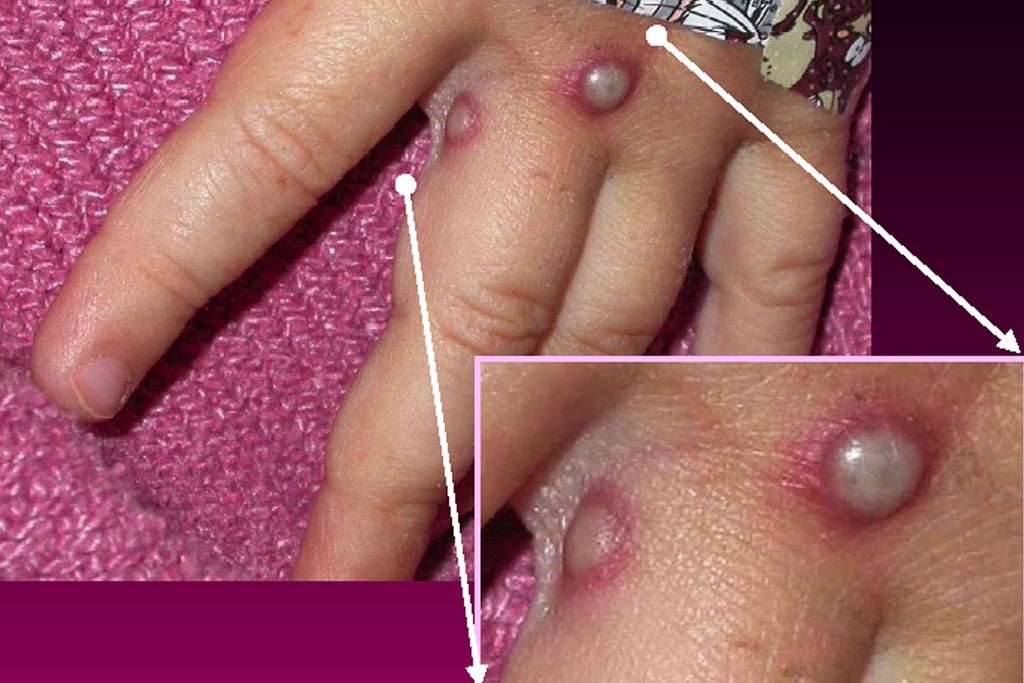
A case of monkeypox has been recorded in the UK, authorities have announced, after a patient contracted the virus in Nigeria.
The patient is now receiving specialist care in a hospital in London, the UK Health Security Agency (UKHSA) has said.
Although human-to-human transmission of the virus is rare, the UKHSA is working with the NHS to contact those that have been in close contact with the individual as a precaution.
Dr Colin Brown, Director of Clinical and Emerging Infections, UKHSA, said: “It is important to emphasise that monkeypox does not spread easily between people and the overall risk to the general public is very low.
“We are working with NHS England and NHS Improvement (NHSEI) to contact the individuals who have had close contact with the case prior to confirmation of their infection, to assess them as necessary and provide advice.
“UKHSA and the NHS have well established and robust infection control procedures for dealing with cases of imported infectious disease and these will be strictly followed.”
What are the symptoms of monkeypox?
Monkeypox is a viral infection which shares many similarities with smallpox, but the main difference is that monkeypox causes swelling to the lymph nodes.
The symptoms are:
- Fever
- Headache
- Muscle aches
- Backache
- Swollen lymph nodes
- Chills
- Exhaustion
A rash can also develop, usually starting on the face before spreading to other parts of the body, and eventually forms into a scab that falls off.
The Centers for Disease Control and Prevention say that the first symptoms can appear between five and 21 days from infection.
How can you get monkeypox?
NHS guidelines say monkeypox can be caught from infected wild animals in parts of west and central Africa if you’re bitten or you touch its blood, body fluids, spots, blisters or scabs.
Monkeypox can also be caught by eating meat from an infected animal that hasn’t been cooked properly, or by touching other products from the infected animal, such as its skin or fur.
The NHS also state that it’s “very uncommon” for monkeypox to be spread via human-to-human transmission.







